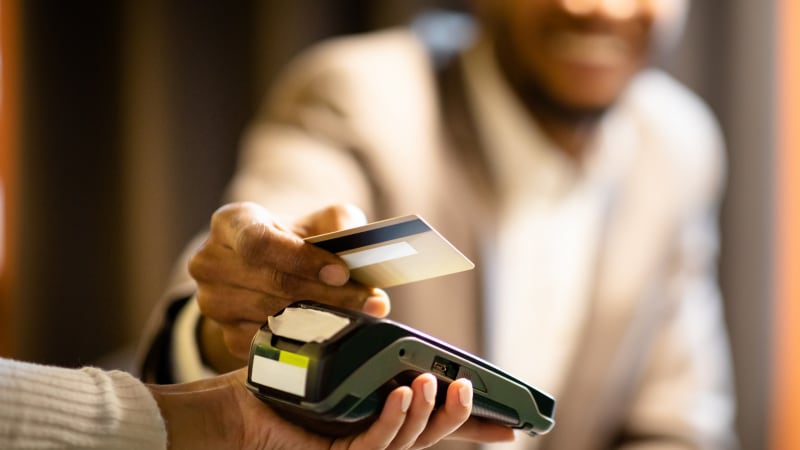What is a credit card PIN?

A credit card PIN is similar to a debit card PIN. Both are usually four-digit numbers that you enter in order to complete a financial transaction.
» More: Starting to build credit? Freedom Rise® offers cash back on each purchase.
With credit cards, you might need a PIN for two types of transactions: getting cash advances at ATMs and making purchases abroad. However, a PIN shouldn't be required for every credit card transaction.
Can you use a credit card without a PIN?
Using your credit card doesn't usually require you to enter a PIN. Everyday purchases in stores and online usually have several credit card payment options: entering the card information, swiping the magnetic stripe, making a contactless payment and inserting the card's chip.
In addition, online purchases with your credit card shouldn't require a PIN. They usually verify your card information against the billing address and Card Verification Value (CVV), the 3-digit or 4-digit code on the back of your credit card.
When you apply or set up your credit card account, you may get an option to add a PIN. Credit cards that require you to have a PIN shouldn't allow you to skip this step. If you're not sure whether your credit card has a PIN, that doesn't mean it doesn't. Some card issuers let you pick your PIN, but most generate a PIN at the time the credit card account number is generated.
Why you may need a credit card PIN
Two types of credit card transactions typically require a PIN:
- Purchases at some stores when you're traveling abroad
- A cash advance at an ATM
A different type of PIN that you might associate with your credit card account is a PIN you can set up with a credit bureau. When you freeze your credit with a credit bureau, you'll create a PIN so that you can unfreeze your credit securely once you're ready.
How do I find my credit card PIN?
Check any mail you still have from your credit card issuer. If your credit card actually has a PIN, it should have been in its own piece of mail, separate from your physical card.
There's also a chance your credit card company will allow you to view your PIN after you sign in to your account portal online. This varies from issuer to issuer, but your PIN may be in the account details or security section. Most of the time, if you've lost or forgotten your credit card PIN, you usually have to request a new one, which arrives by mail within two weeks.
How to get a credit card PIN
While few types of transactions require a credit card PIN, getting one usually just requires you contact your credit card company.
While it's not always possible to receive your PIN over the phone, you can start the request by calling your credit card issuer. After that, PINs are usually mailed to the address your card company has on file. However, your issuer may give you other options, such as text message or email.
To request or change a PIN for Chase credit card, please call 1-800-297-4970. Operator relay calls accepted.
How safe are chip and PIN credit cards?
Chips and PINs are meant to be security measures used for credit card transactions. Both are common nowadays, and you may be familiar with PINs from using them for debit card transactions. The number is meant to be unique to you and the card so that you personally verify a transaction before it's processed.
Chip technology is no longer new for bank and credit cards. An EMV chip aims to provide security to the transactions you make with your physical card. When you insert the chip to pay for a purchase, a unique code is created for that single transaction.
In conclusion
You may be able get a credit card PIN by phone or online, depending on your credit card issuer. Credit card PINs are relatively uncommon, but they serve a worthwhile purpose: identifying you. Although you may not have chosen it, your credit card may already have a PIN assigned for cash advances. A PIN is usually required for two types of credit card transactions: cash advances at ATMs and some purchases abroad.



